Rainy Season
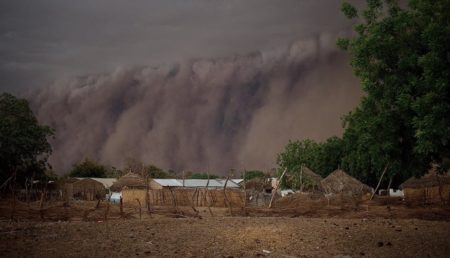
The 2018 rainy season began on June 27 with a massive dust storm followed by torrential rains. There had been occasional light sprinkles since early June, but the photo above reflects the incredible power of the first major storm of the year. Harry took the photo from his village in the Central River Region, where he had a clear view of the approaching storm. The photo below was taken by James who lives on the river in the West Coast Region, and he captured his image during a lightening storm.

Locals remember when the rainy season lasted for five months, but now three months of rain are the norm – July – August – September. The Gambia’s climate is Sahelian, characterized by high variability in the amount and distribution of annual precipitation. Data shows that during the past 50 years there has been a decrease in the total amount of precipitation, reduced length of the rainy season, and an increase in the frequency of droughts and dust storms. Wind storms are common, particularly at the beginning and towards the end of the rainy season, and account for the most damage to properties in rural areas. As deforestation and urbanization denude the landscape, windstorms could become even more severe, resulting in even greater loss of life and property. The Gambia’s low-lying topography, inadequate storm water management in urban areas, reliance on wood to make charcoal for cooking, and poor agricultural practices, make this country one of the most vulnerable to climate change.

Agriculture is predominantly subsistence and rain-fed with farmers relying on traditional cultivation and livestock management practices. Over the last fifty years total cropland increased from under 100,000 hectares to over 300,000 hectares, at the expense of natural woodland and wetland ecosystems. Agriculture is the primary source of livelihood for many Gambians, employing about 70% of the workforce and accounting for about 40% of export earnings.
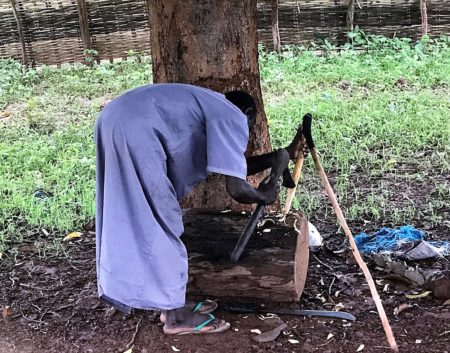
The Gambia is one of the most densely populated countries on the African continent, with about half of the population now living in urban centers. The more temperate areas of the West Coast Region doubled in population between 1980 to 2000, as rural residents moved to Serekunda, Brikama, Bakau, Banjul and Kombo seeking a more modern lifestyle.
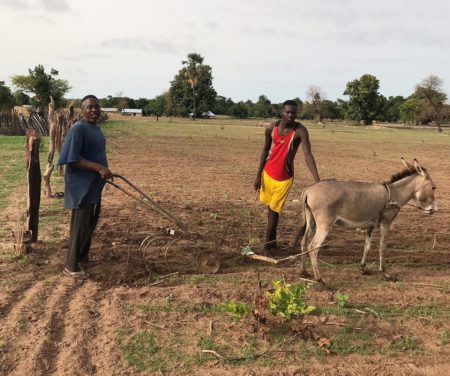
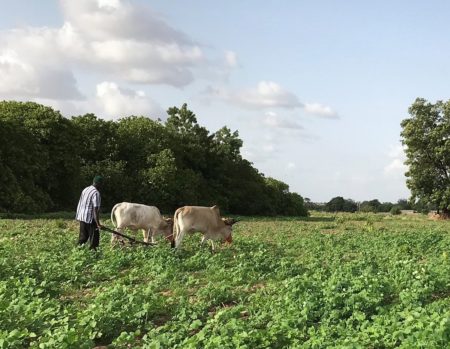
The main crops grown here during the rainy season include: cassava, coos, sesame, maize (corn), groundnuts (peanuts), beans, rice and vegetables. Fields are cleared prior to the rainy season often by burning, which can cause numerous problems. Bush fires can get out of control with catastrophic results, and burning before planting is counterproductive. Not only does the land become less fertile, but the toxic particles can end up mixing with water and damage the health and economy of human beings. PCVs strive to educate farmers regarding the risks of pre-planting burning, but have had limited success for a variety of reasons. Cultural farming practices and limited understanding of science based agricultural techniques are major factors.
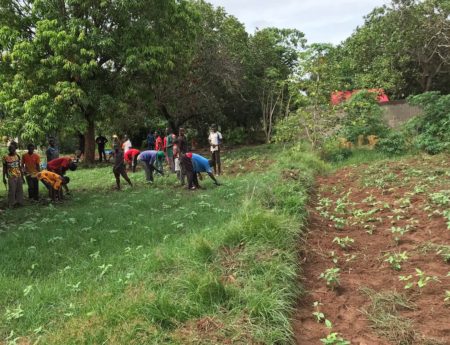
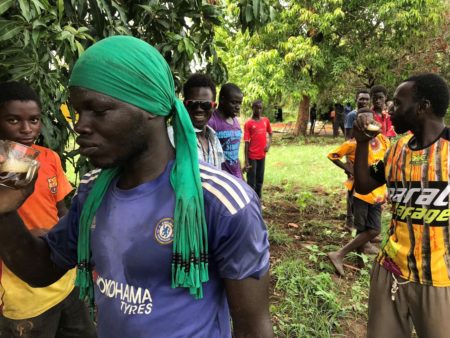
It takes a village to maintain the field crops, and the photos above were taken at Massembeh during a recent workshop I attended. The football team members from Massembeh Village arrived at 8am for instructions on what needed to be done that day, along with some women who accompanied them to provide snacks and ataayaa tea to nourish them during the long day. A lot of weeds can grow during the rainy season, and it was impressive to see the transformation of PC training center after the weeding was completed.
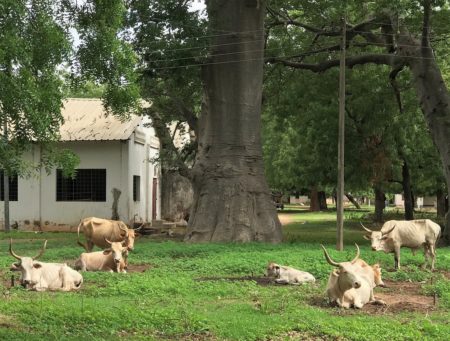
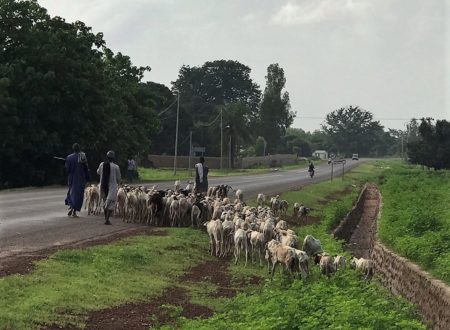
One aspect of village life that changes during farming season is management of the livestock from their normal free roaming status. Because most fields are not fenced, if the animals aren’t managed they will devastate the crops. Goats, sheep, cows, and donkeys are often tied up, and then moved regularly by the men and boys. The pigs are kept in their styes and herds of sheep, goats or cattle will be moved from pasture to pasture, often stopping traffic on the highways. There are consequences for not restraining your livestock. Village councils will levy fines on the owners of animals caught eating the crops, usually about 100 dalasi (about $2) for goats and sheep, and 200 dalasi for donkeys or cows. The money collected will be used for community development projects.
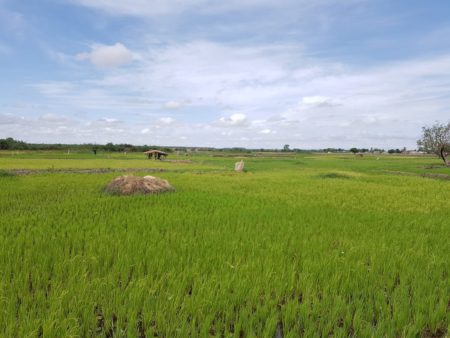
So far this year the rains have been minimal and just barely enough to keep the crops watered. It is very humid at this time of the year, and a relief when the skies open up and drench everything, causing the temperature will drop a few degrees. I don’t travel anywhere without my raincoat, and try to keep an eye on the clouds to be prepared for an approaching storm, which can arrive very quickly. The rain usually only last for 30 to 60 minutes at a time, and fortunately there hasn’t been any major flooding where I live, but we need it to rain everyday.
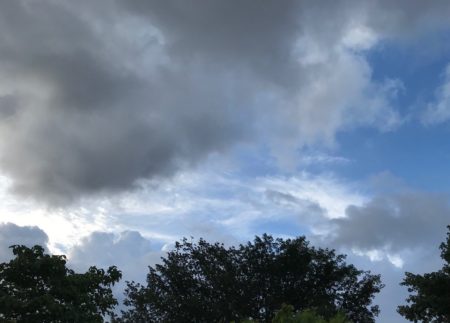
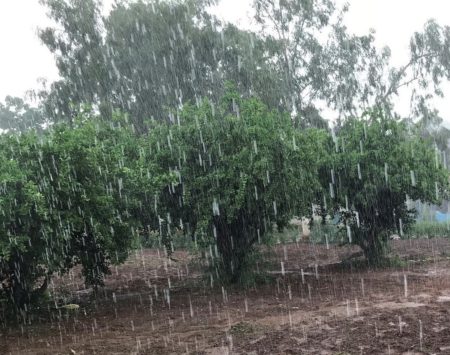
A good rainy season is crucial for a successful harvest for farmers using traditional growing techniques. Unfortunately, getting enough rain is no longer a given and only a fraction of farmers are adapting their methods to accommodate for a changing climate. PC is working to bring science based information to the rural communities, where a poor harvest can mean the difference between having enough to eat and money to send the children to school. Promoting permagarden soil preparation, emphasizing the necessity of maintaining enough forests to combat desertification, and managing livestock to protect food crops are some of the ways PCVs can assist Gambian farmers to become more productive.
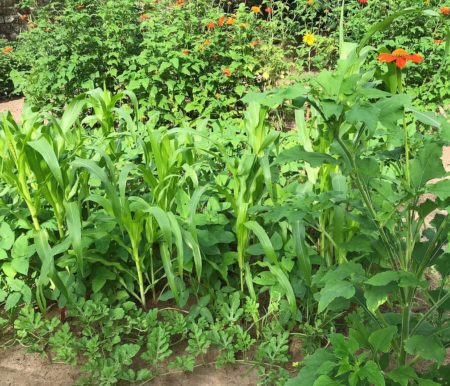
I will be on vacation most of September – I’m meeting some Oregon friends in Greece and will spend a few days in Rome before returning to my PCV work. My garden beds are all planted and I hope it rains regularly enough to come back to a good harvest season.
2 thoughts on “Rainy Season”
Very informative…thank you…
It has been very interesting and educational to follow your life and activities as a PCV Susan. Thank you for sharing your daily life and unique experiences with us all, and thank you for your service! Sending Love!
Comments are closed.